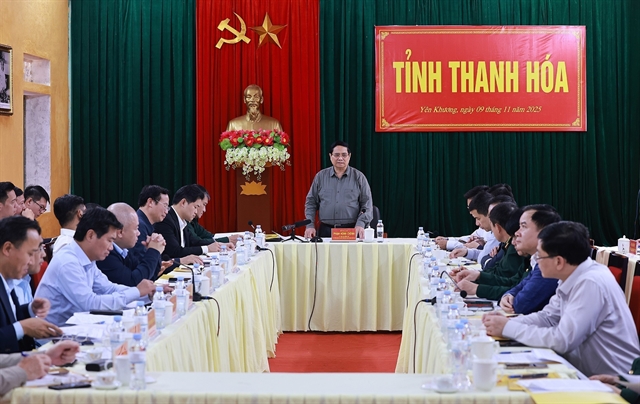 Society
Society

Developing a functional collective bargaining agreement in enterprises is an urgent demand to maintain “harmonious and stable” labour relations.
 |
| Workers cleaning and packaging grapes on a grape farm in Phan Rang-Tháp Chàm City of the south-central coastal province Ninh Thuận. — VNA/VNS Photo Nguyễn Thành |
HCM CITY — Developing a functional collective bargaining agreements in enterprises is urgent to maintain “harmonious and stable” labour relations.
Lê Xuân Thành, deputy head of industrial relations and wage department under the Ministry of Labour, Invalids and Social Affairs (MOLISA), made the remark yesterday in a workshop reviewing the progress of collective bargaining deals.
“Việt Nam is in the early stage of industrialisation, with the level of competitiveness and capacity varying a great deal between different businesses, collective bargaining agreement as a legal tool holds critical importance towards a balance between the rights and benefits of employers and employees,” Thành said.
Recent surveys by MOLISA have showed that despite being newly adopted practice in Việt Nam, businesses that have negotiated a collective agreement and follow through with promises of better benefits and working conditions tend to induce good discipline amongst workers and reduce risks of wildcat strikes and costly labour disputes.
However, some have pointed to the still widespread issue of businesses ignoring collective agreement, or their failure to listen to grievances from workers during negotiations. Many essential issues in labour relations such as wages, bonuses, factors in determining pay raises, working conditions, etc. have not been given sufficient attention, the meeting heard.
To tackle these problems, Nguyễn Hồng Hà, deputy head of the labour and wage office at the HCM City’s labour department said it’s important to raise “legal awareness” amongst workers, and to more effectively communicate to enterprises the meaning of collective bargaining agreements and labour code violations.
Her counterpart in Hà Nội, Nguyễn Thị Oanh, agreed, saying that “equipping union officials with legal knowledge and better skills in negotiation and in resolving labour disputes” is a necessity.
Trade unions must keep in touch with workers, to reflect the employees’ expectations and demands towards employers in the collective bargaining process, Oanh said.
While Việt Nam has not ratified the International Labour Organisation (ILO) Convention No 98 on the right to organise and collective bargaining, the country has made commitments to fulfill the obligations through new-generation trade pacts, including the Comprehensive and Progressive Agreement for Trans-Pacific Partnership (CPTPP) that the National Assembly adopted earlier this month and the EU-Việt Nam Free Trade Agreement (EVFTA) which is slated to be approved by the European Parliament in early 2019.
Currently, the country has more than 505,000 active businesses, employing 15 million people.
By 2018, 27,000 businesses had signed collective bargaining agreements, accounting for 21 per cent of the number of firms with 10 employees or above, and 67 per cent of businesses that have a union.
All public sector enterprises have signed collective bargaining agreements, while the figure in private sector and Foreign Direct Investment (FDI) was 66 per cent. — VNS




